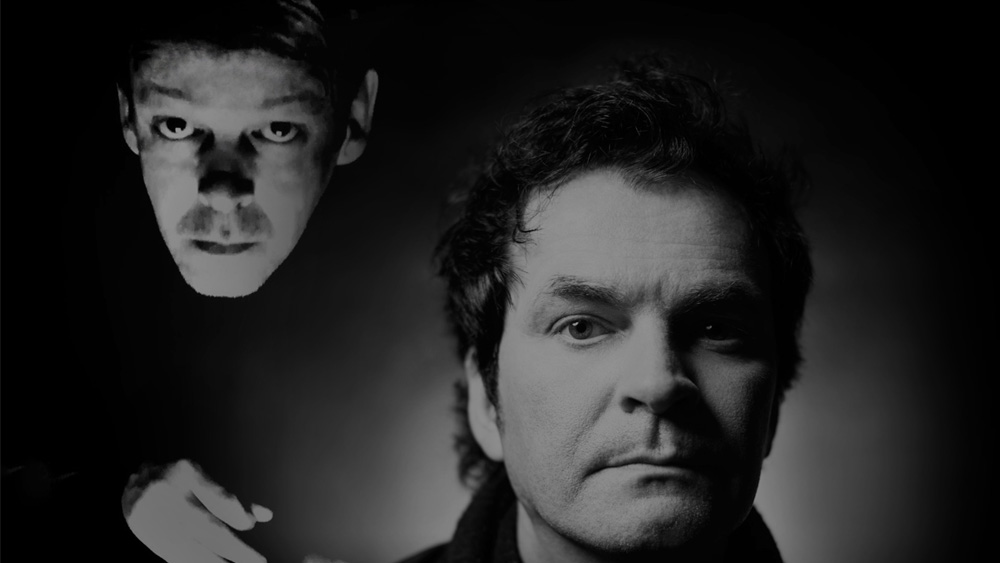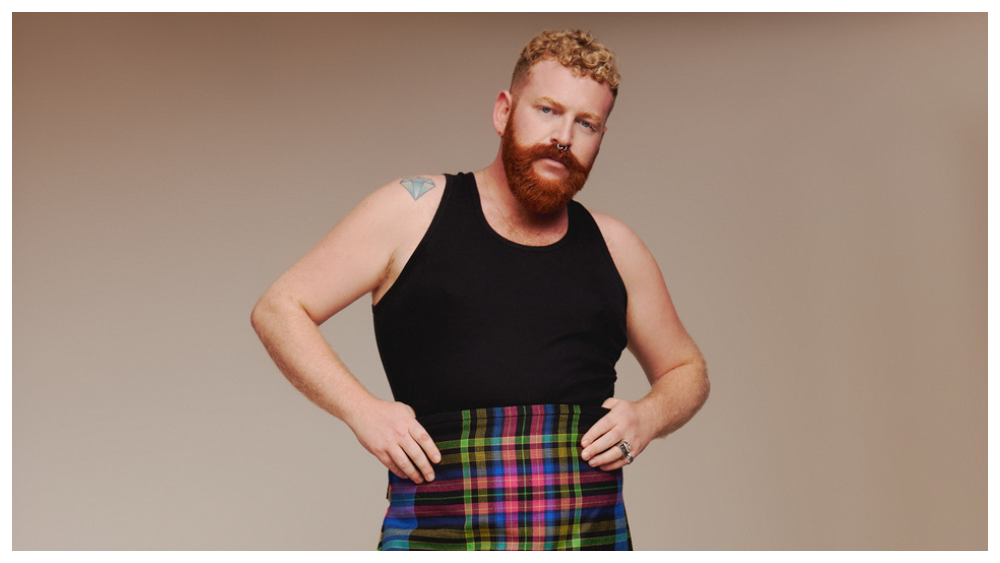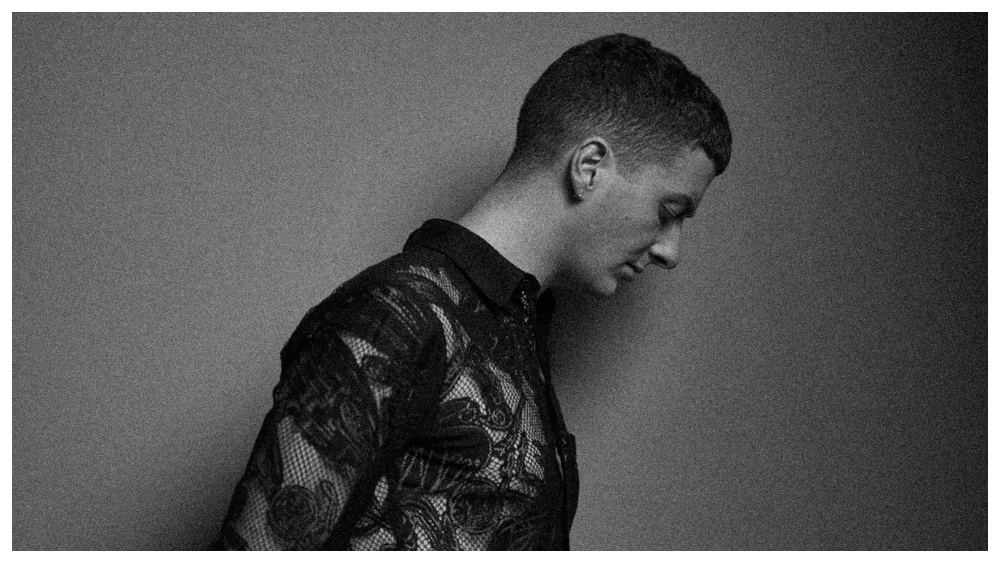As Butterfly Child Joe, alongside his childhood friend Gary McKendry’s Papa Sprain project, were early purveyors of the UK’s burgeoning dream-pop scene.
Both Gary and Joe were signed to the A.R. Kane label H.ark! before being picked up by Rough Trade ahead of their collapse in the early nineties.
After Joe pursued other musical avenues outside of Butterfly Child and moved to the states and Gary receded from the music industry, the friends drifted apart.
Prior to their label days the pair made bedroom cassettes in their home city of Belfast under the moniker My Bus.
More than 20 years later the duo re-established their relationship and picked up on the music they had begun working on decades before.
Our Life In The Desert is the results of their labour, soon to be released via Onomatopoeia.
We caught up with Gary and Joe separately to chat about the record, what brought them back together and what forced them apart in the first place…
Gary: Me and joe used to make demos together years ago – like in the late eighties – and we worked together on Onomatopoeia, the Butterfly Child record, in 1993. Since then, we went our separate ways. I hadn’t spoken to him in a while, but I met up with him again though the internet and stuff and we decided to work together again when he was back home in Belfast.
The title was sort of a good reflection of where we’d been musically. I think it was something I mentioned. There wasn’t really a concept behind it, it was just work, you know? We produced something together as an experiment to see what we’d turn out, having not worked together for a while.
Joe: We grew up as kids, we were very, very close and we always made these little cute demos together. When he was doing his Papa Sprain stuff and I was doing Butterfly Child we would always give each other critiques. Over the years there was always this thing in the back of my mind that it was kind of sad that me and Gary never got to do any of the stuff that we called My Bus that we started doing in the eighties.
Then I was over in Belfast for a few months and Gary just reached out to me one day and we just hung out for a bit. It was lovely to see him, because I hadn’t seen him literally since the nineties.
The main impetus was when I walked into his house that first day, we had this song from the album called Goosepimples Forever, a seven-minute-long song. We knocked that out in a couple of hours back in the late eighties and I knew that we could never really replicate it because Gary basically doesn’t sing anymore. So, I walked into his house and he said, ‘you’ll never believe what I’ve found,’ and he handed me a four-track cassette, which is what the original demo was recorded on.
I wasn’t thinking of it as something we could release as an album, I could just tell that Gary was really excited to be working on music again. It was a nice sort of closure for us in a way. It just got into this thing where it was a very crazy, quick, creative period where we would send files back and forth.
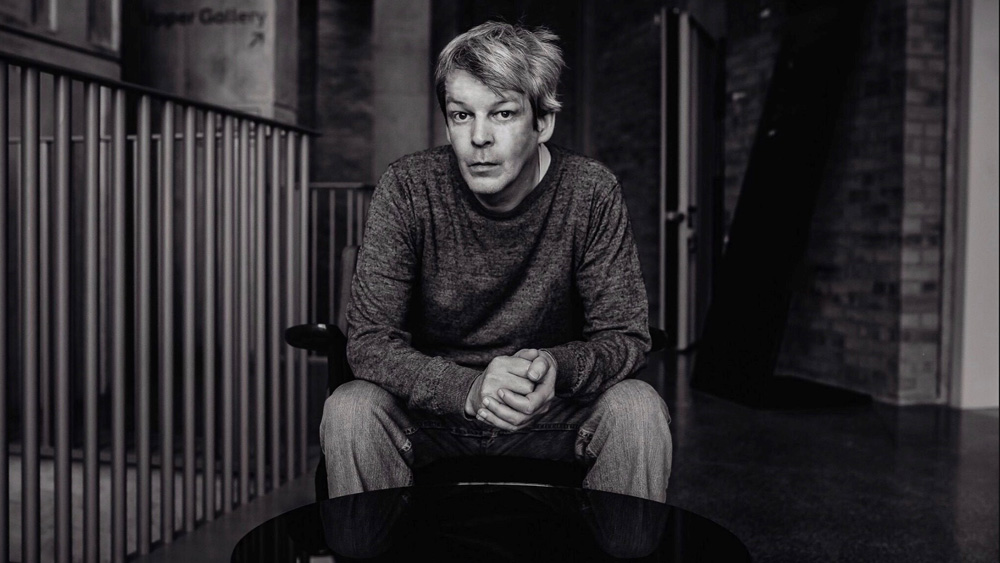
Gary: For me it was a breakdown and for Joe, his was later. I don’t know why he stopped. After Soft Explosives he didn’t do anything for like 15 years, or something. I don’t know why. He might be doing other stuff; he manages other artists, I think.
For me, I just lost contact with the music business. I took a break from music for a while and then when I got back into it, I was just happy to do it for myself.
Joe: I think it was different for Gary, because Gary basically disappeared completely after there was the whole thing with Rough Trade. Gary basically made two EPs for the H.ark! label and then he signed at the same time as I did with Geoff Travis from Rough Trade and I very quickly put the Onomatopoeia record, Butterfly Child, together with Gary in Belfast. We knocked it out in like 12 days, or something.
Then Geoff Travis was expecting this beautiful, weird pop record form Gary and Gary ended walking in and giving him his reinterpretation of Finnegan’s Wake. And Geoff was like, ‘this is going to be a hard sell, but we’ll do it.’ Gary turned around to Geoff and said, ‘Geoff, you don’t get it – this is going to sell more copies than thriller.’
Inevitably, Rough Trade ended up not releasing that record and it was basically the end of Gary’s musical existence. When Rough Trade started getting in bad shape, I ended up signing with Dedicated and I put out a second record out with them, which was a disaster because they were also going under.
A label in the States wanted to release the albums there, because they’d never been released. So, I came out to Chicago and ended up signing another record deal, put out a third album and for a few years all I did was a million shows with everybody from New Order to Travis and Muse. In 2002 I ended up creating this other band that was like a New Order electronic thing. We signed a huge record deal with Arista and then our boss got fired and I couldn’t work with Clive Davis, so we had to negotiate out way out of the deal.
That was when the music business was really getting into a bad place. I moved to L.A. and was still making records and producing people, but I was mainly concentrating on my actual weekly music career, which is why I got into documentary scoring and that kind of thing. It’s not like I ever really stopped.
Was it in any way strange making music together after all these years?
Gary: Yeah. The idea of us recording together was strange. I would record stuff on my iPad, you know, loops and stuff and I would post them to him. Then he would feed them into his music and come up with the finished item.
Joe: It’s funny, we’re both very different people than we were in the eighties and nineties, and in different ways. It’s one of those things that always just felt right. I come up with the melodies and Gary’s job is just basically to put the apocalypse on basically anything I do. There’s a two-and-fro between the two of us, we’re both partners in crime. It felt like a complete walk in the park.
There were only two things we disagreed on. I would send Gary a mix and he would be like, ‘yeah, this sounds awesome,’ but I remember I sent him Elvis and Me and he said, ‘I really like the song but can we call it Sinatra and Me – I don’t like Elvis.’ And I’m like, ok, that’s not gonna happen. And then he didn’t want to use his voice on Angeles but I told him it was a central part of the record to me and if that’s not going to be on the record then I’m scrapping it. He very quickly changed his mind.
Gary: Just the novelty of it.
What motivated you to set parameters that the songs be written and recorded in a day for this project?
Gary: I don’t know. I produce a lot of music. I work on five or six tracks at once. I run permutations of mixes, changing sounds but keeping the midi the same. I think Joe started with that in a way and maybe to do things quickly for himself.
It maybe gives it a sense of spontaneity. But he did work on the mixes for a longer time. I think he spent time on that.
Joe: The funny thing is, it did me good because in later years, especially working on commercials and things, you sometimes get a brief in and it’s would be like, we need a full song in two-and-a-half hours. There was one situation where they wanted it in 45 minutes.
It’s just something that me and Gary did. We were very spontaneous and a lot of the bands that we loved, back then, they didn’t take themselves too seriously. There was a lot of improvisation going on. So we just we in this thing where if you spent more than an evening writing and mixing a song – and you have to remember we were working on a very primitive four track recording device, it was very hissy – but it was always the way we worked. In my opinion, if you can write and record something in a few hours or over the course of a day, and you still like it, then it means it’s something that’s inspiring to you and probably going to work as a track.
What’s behind the decision to donate some of the proceeds of this album to a mental health charity?
Joe: We’re not expecting this to be number one in the billboard charts. We’re probably going to be hovering somewhere in the Shetland Island charts – like number 47 after a few sheep bought the record. It’s not like we’re giving this huge big gift, but we have already had some interest in terms of licensing for films and things, which is cool.
With everything that happened with Gary, I just thought it was a really good cause. These days, for the most part, if you think you’re going to make sizable amounts of money you’re usually gravely mistaken. I’m lucky in that I still get nice royalty checks, but for most artists it’s only the top five percent that make anything more than a few grand a year. So, I thought it would make sense if we donate 50 percent of whatever we get in from the record to a mental health charity. That’s Gary’s job to pick one and then we’re setting it up next month.
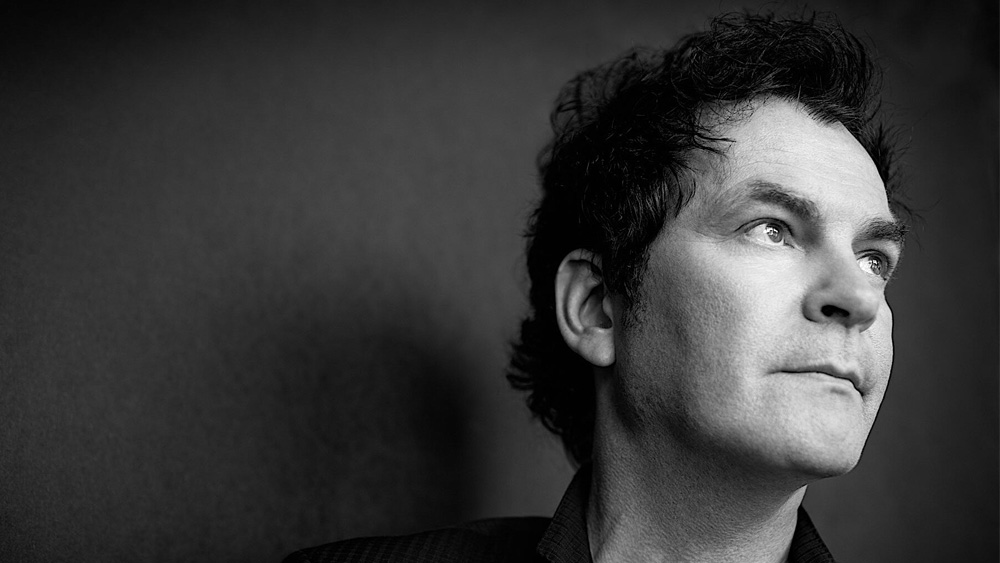
Gary: I’m not up on that kind of music at all.
Joe: I didn’t think I was a pioneer of anything. Me and Gary loved A.R.Kane and Cocteau Twins. We loved My Bloody Valentine, even though people call them shoegazers now. I literally want to punch people when they say that. They were definitely not.
I remember a few years ago my music lawyer called me – and this was back in the early 2000s – there was a Broken Social Scene track and she was like, ‘I think you ripped them off, can I send them a letter?’ and I was like, no. It sounds similar, but it’s not a big deal.
It’s one of those things, if you’re trying to do something sincere – like the difference with shoegaze and dream pop is that shoegaze to me is this fluffy cloud of nothingness for the most part, with crazy amounts of reverb, but there’s nothing there. I think at least with dream pop, whether it’s the A.R.Kane thing – there was politics in there – it could be aggressive, it could be stunningly beautiful. Emotional as well, on a lyrical level.
The music industry has changed beyond recognition since you were releasing music though H.ark! and Rough Trade. What’s your take on how it’s developed in the intervening years?
Gary: Honestly, I don’t know. I think it’s maybe harder to make money from music apart from playing live. You make a lot less money from streaming than you do from when we were doing it. It’s the choice as well; what music you want to hear and how you want to listen to it. Before it used to be record shops and the radio, that was it.
Joe: The biggest difference now is fighting for any kind of space. In terms of getting physical press, music blogs. Radio has virtually died, and I know this because my other day jobs these days is managing artists and it’s become crazy because most people don’t even think about having radio pluggers their main thing is figuring out how to get on the Spotify playlist. It’s completely like the wild west.
The nice thing is that there’s still all these wonderful labels out there that really care and have the conviction to do it. Onomatopoeia Records are putting this one out, if it wasn’t for Nick Bourne this whole thing would probably have never happened. That will never change; there will always be artists and labels like out there and that’s great.
You mentioned a sense of closure while making this record. Is that now it for My Bus?
Joe: No, I don’t think so. There’re enough things that we didn’t end up pursuing on the record that are really good. It just reminded me that whatever the chemistry that Gary and I have, we just bounce off each other. It’s tricky because he’s in Belfast and I’m in Chicago but with the wonders of technology, you can do anything.
I think I mentioned closure in terms of that chapter in our lives that kind of got cut short. And then we had all this music that we never considered doing because we were always so busy with our other projects. It’s not even a case of how successful this record is. All we’ve ever care about, it wasn’t about money, it’s just that creative thing and creating something that you really love.
Gary: We’ll see what happens with Butterfly Child and stuff, but I’ll just keep on working anyway. Maybe we’ll do another one. We’ll see.
Our Life in the Dessert will be release via Onomatopoeia Records on 31 January.
